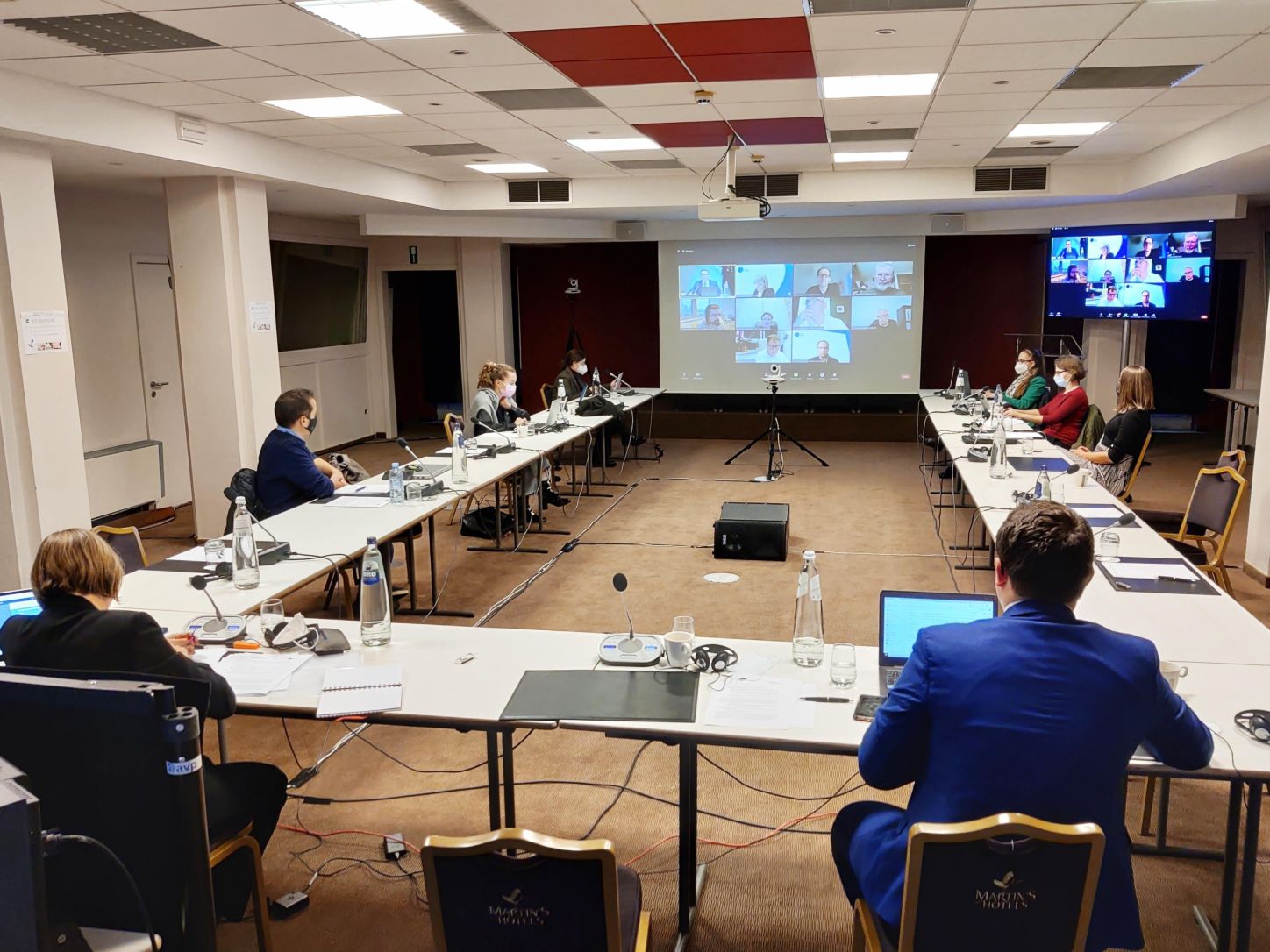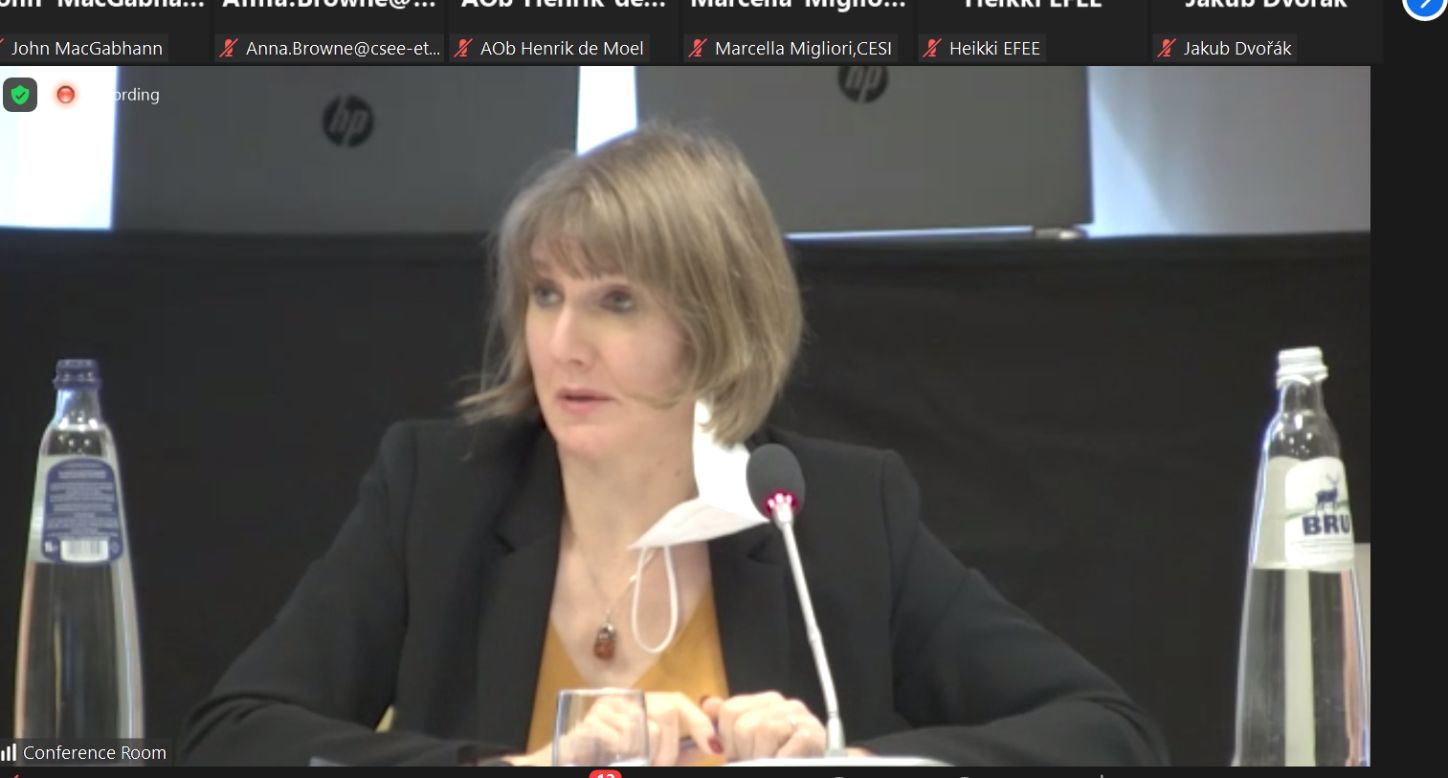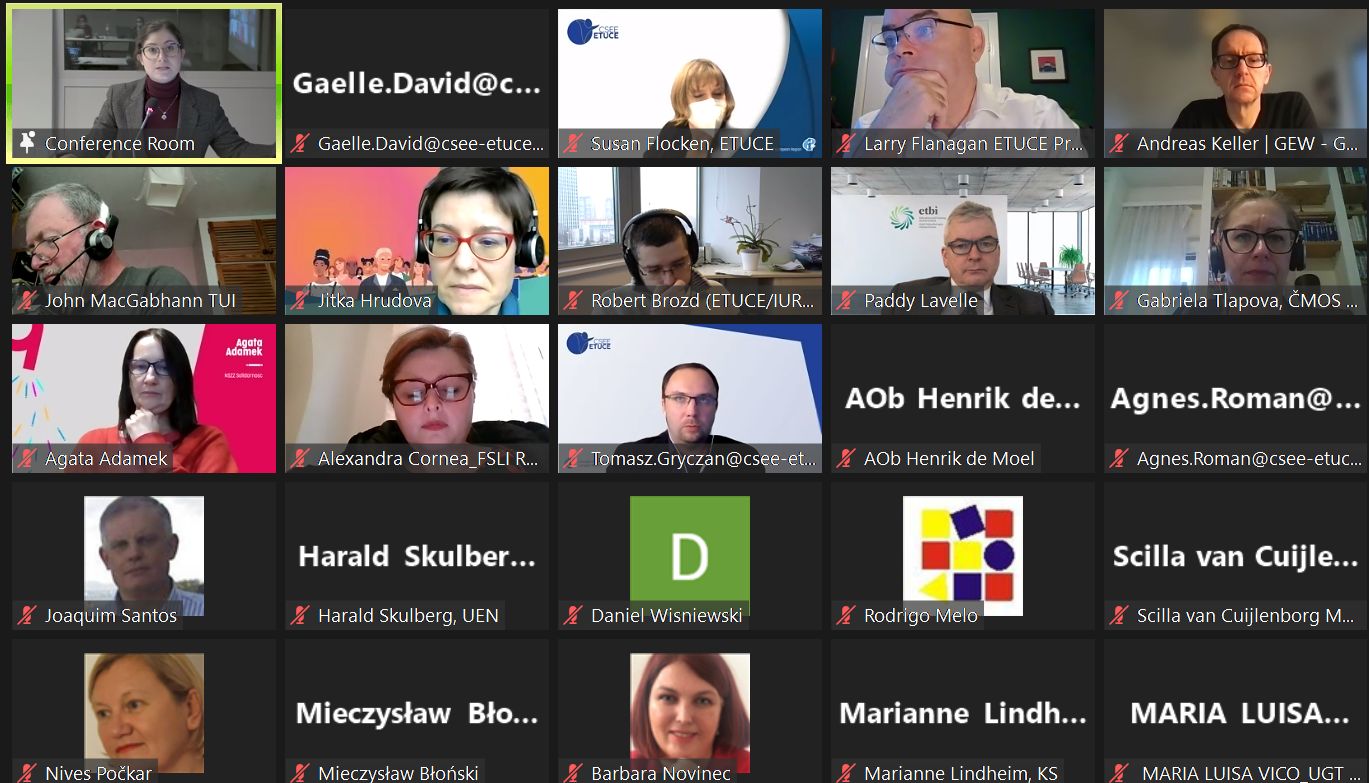
European Sectoral Social Dialogue in Education: ETUCE and EFEE agreed on joint work for 2022-2023
Social dialogue country-delegates from ETUCE and the European Federation of Education Employers (EFEE), along with the two secretariats, met in Brussels on 15 December 2021 for the Plenary meeting of the European Sectoral Social Dialogue in Education. They set out their plans for the coming years and committed to concrete policy priorities and joint activities.
Social dialogue is an institutional framework that brings together employers’ organisations and trade unions, collectively known as social partners, for negotiations on issues relevant to the employment relationship. The EU supports Europe-level social dialogue for various sectors of the economy, and ETUCE is the trade union organisation representing workers in education. The annual Plenary meeting of the European Sectoral Social Dialogue in Education ( ESSDE) is the formal decision-making body of the ETUCE-EFEE joint committee.

Jitka Hrudova, from the European Commission’s DG Employment, presented the ongoing Review of sectoral social dialogue at EU level. She was followed by Géraldine Libreaux, from DG EAC (Education, Youth, Sport and Culture) who shared the Commission report on how to recruit, train and motivate qualified staff in Early Childhood Education and Care. Her colleague Stefan Zotti delivered a keynote speech on ensuring qualitative and sustainable investment in education in the time of recovery from the COVID-19 pandemic, sharing some of the key findings of the Commission expert group on quality investment in education.

The social dialogue delegates were invited to provide their input on how social partners in education can contribute to the resilience and sustainability of investment in European education systems.
Three documents produced within joint social partner projects were adopted:
- The joint Statement on Opportunities and challenges of digitalisation for the education sector
- The joint Statement on Promoting the Implementation of OiRA tools in Education Institutions by the European Sectoral Social Partners in Education
- The joint Policy Recommendations on Lifelong Learning for All: Social Partners in Education promoting quality and inclusive VET to enhance lifelong learning for all

The plenary was also the opportunity for the delegates to evaluate the work of the ESSDE over the last two years, before discussing for adoption the 2022-2023 Work Programme, which tackles new and future challenges and offers a long-term vision for their joint action. This is all the more important as the ongoing COVID-19 outbreak causes an unprecedented health, social and economic crisis, with dramatic repercussions on education personnel and students. At the heart of the social partners’ joint work over the next period will be 9 specific topics:
- Quality investment in education and training
- Social dialogue and capacity building
- Attractiveness of the teaching profession
- Digitalisation and innovation in education
- Occupational health and safety
- Education for environmental sustainability
- Inclusion, equality and democratic citizenship in education and training
- Quality and inclusiveness of VET and apprenticeships
- Higher education and research
The 2022-2023 Work Programme focuses on growing issues that will continue to have a key impact on the education social partners’ mission to achieve quality education for all. This new Work Programme identifies the urgent need to develop digital competences alongside other basic and transversal skills in the context of recovery from the COVID-19 pandemic. It also emphasises the importance to address environmental sustainability and to provide people with green skills. Finally, in light of the growing diversity of the European society, inclusion, equality and democratic issues are also brought to the forefront.







